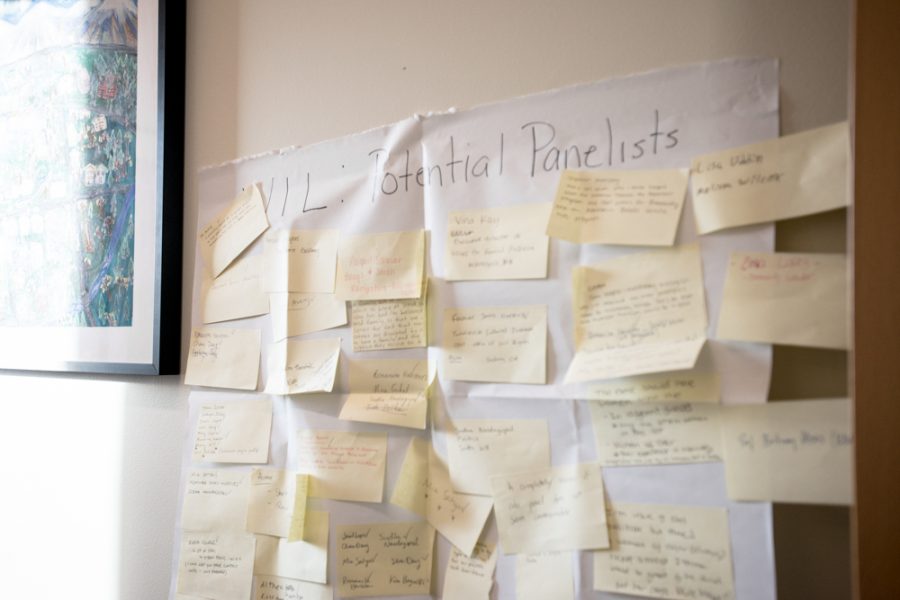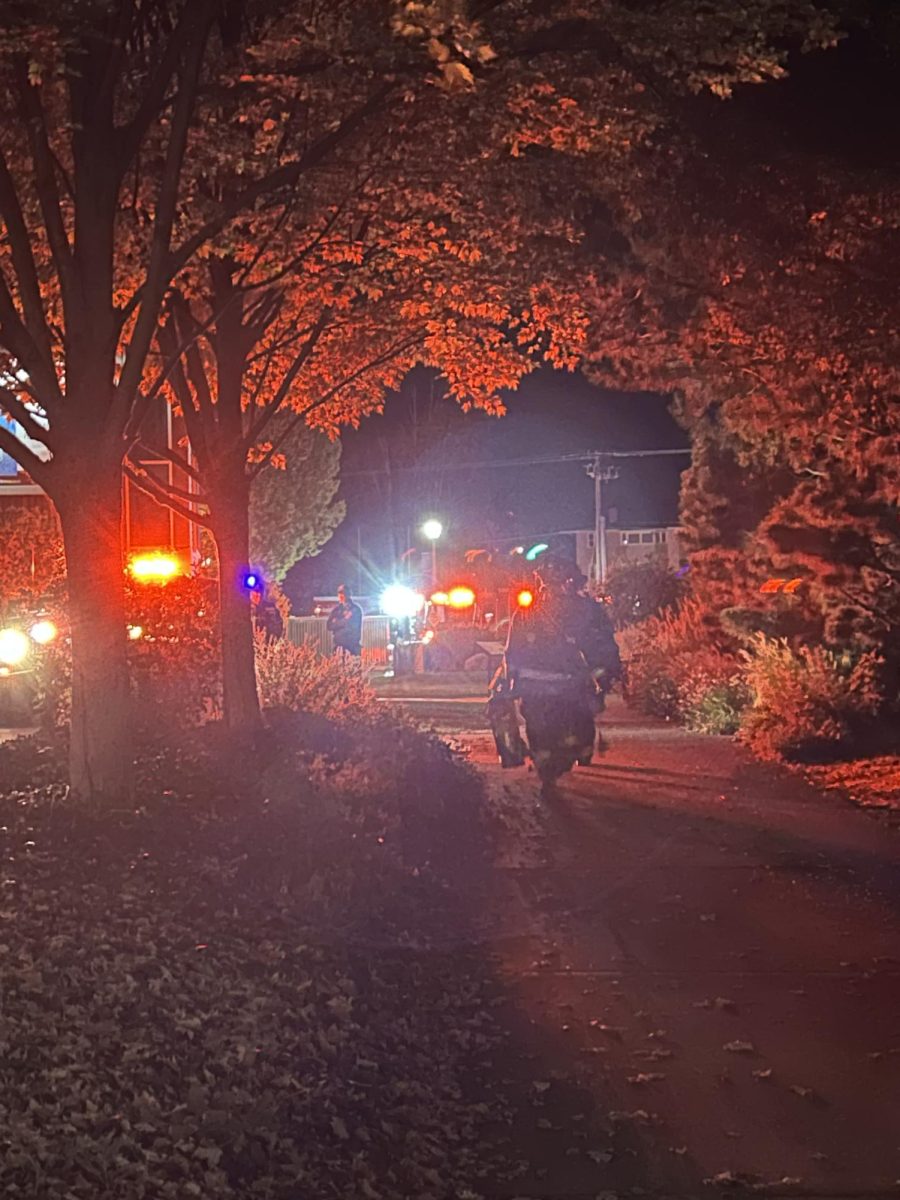This Wednesday, O’donnell Visiting Educator Jamie Workman presented a lecture by the intriguing title of “Save the River, Kill the Trees.” In his talk, he explained why the overabundance of trees in the western United States is causing worse forest fires and lower water levels, and advised a thinning method to counter this prevailing environmental issue.
The excess tree population, Workman explained, began with Americans’ idealization of trees, or what Workman called, “tree worship.” Things like Arbor Day, a day dedicated to public tree-planting, and National Parks, which were created in response to the tree deficit America was experiencing, have led to a perception of trees as completely benevolent. There is a conception that more trees are always needed––the more there are, the better. Which, of course, is true in most cases around the majority of the world. However, it isn’t a viable mindset for the west in the U.S. The planting of trees, Workman describes ironically, “spread like wildfire.” We have too many trees, and this is causing a lot of problems. Americans, it seems, got a little carried away in their admiration of nature and apparent dedication to bettering the environment. Workman posits that “we have to start thinking of [trees] as parasites.”
“He presented a unique perspective on how we approach, and demonize, wildfires by flipping a conventional paradigm (“the more trees, the better”) upside down––just by simply adding water,” said sophomore Tim Reed.
Not long ago, America experienced the worst bout of forest fires it had seen in a long time. This frightened the population, and resulted in what Workman called “the first declaration of war on an abstract noun.”
“Before the war on terror,” Workman said, “there was a war on wildfire.”
Propaganda played a large role in the growing hatred of wildfires, as it does in other big movements of societal opinion. Images created of wildfires as evil entities spread, and icons like Smokey the Bear and the heroic firefighters created a force of “good” against the enemy (fire). Parallels to things like Homeland Security, in color-coded security threat levels, created an exaggerated perception of danger from fires. A war-like effort, consisting of watch towers, air power and ground troops was deployed by America’s resource-heavy government to quench wildfires on a large scale. And it worked. The country is spending about $2.5 billion to suppress fires every year.
And, Workman explains, this is certainly not worth it. The lack of fire has caused native species to become invasive, and ultimately, the excess forestation provides fires with more fuel and causes the fires that do occur to be far more intense and destructive than they would have been naturally. Forests now aren’t thinned naturally by fires, which makes the area far less susceptible to being burned down––there isn’t room for the fire to grow when the trees are only few and far between.
So why don’t we now thin the forest ourselves? Primarily, expense. People are also just generally wary of any sort of tree-killing effort, and do not trust the lumber industry. There is also a certain emotion attached to the forest, created by ideas of Bambi and Smokey the Bear.
But, Workman explains, there is actually more at stake than intensified forest fires. The abundance of trees means that 57 billion more liters of water per day are being absorbed than would be in a naturally thinned forest. That amount of water could provide L.A. with water for 26 years––a powerful figure that’s monetarily worth $4 billion per year. In this way, we can truly see these excess trees as parasitic, resource-monopolizing entities.
“I had heard much of Professor Workman’s argument for forest thinning and better fire management, but this was the first [time] I had heard these ideas framed as a water conservation issue,” said sophomore Carl Garrett. “Workman’s standpoint as a water advocate added a new layer to an issue that I was aware of, though I hadn’t even thought of the effects of the U.S.’s current wildfire policy on watersheds.”
This dimension gives a big persuasive power to those trying to bring about the government-sponsored thinning of forests in the West. Families, farms, firms and fish are all beneficiaries of increased water supply, and the economic value of water adds a bargaining chip in attempts at negotiations. But in order to bring about these positive changes, Workman concludes, we will have to fundamentally change the way we think about these “river-killing” trees.












